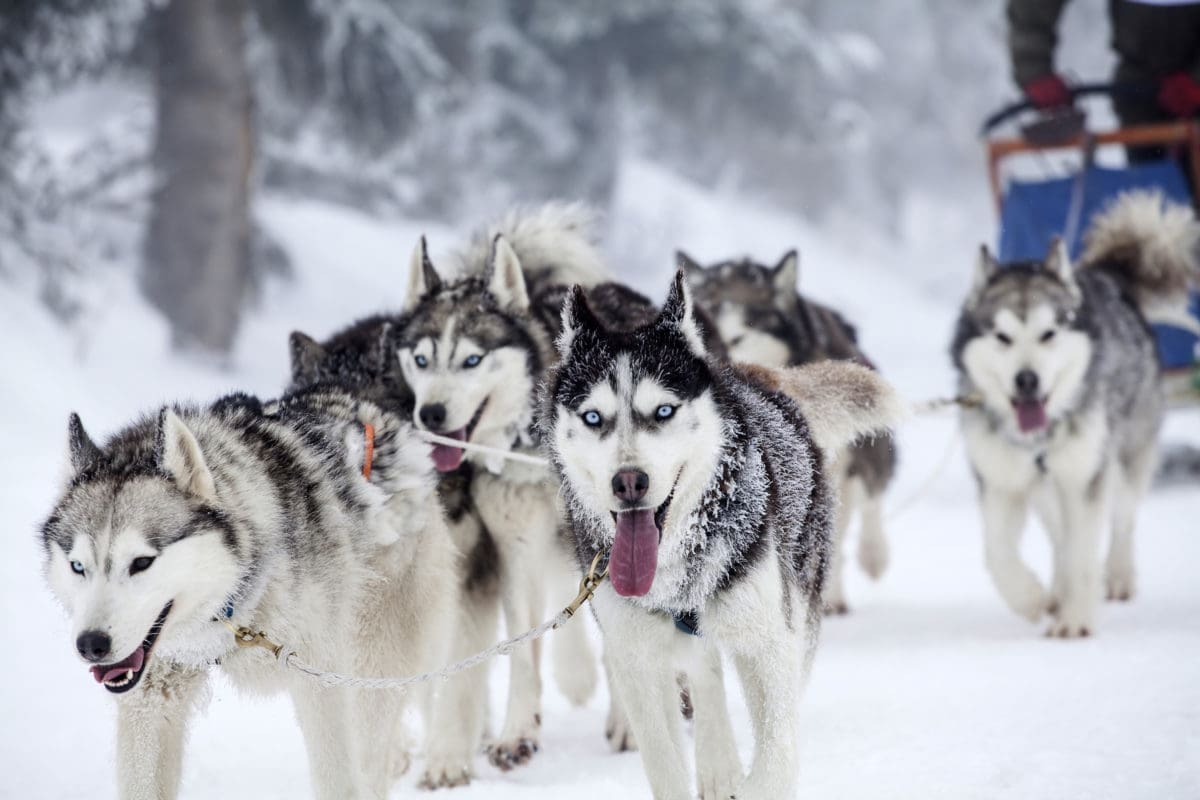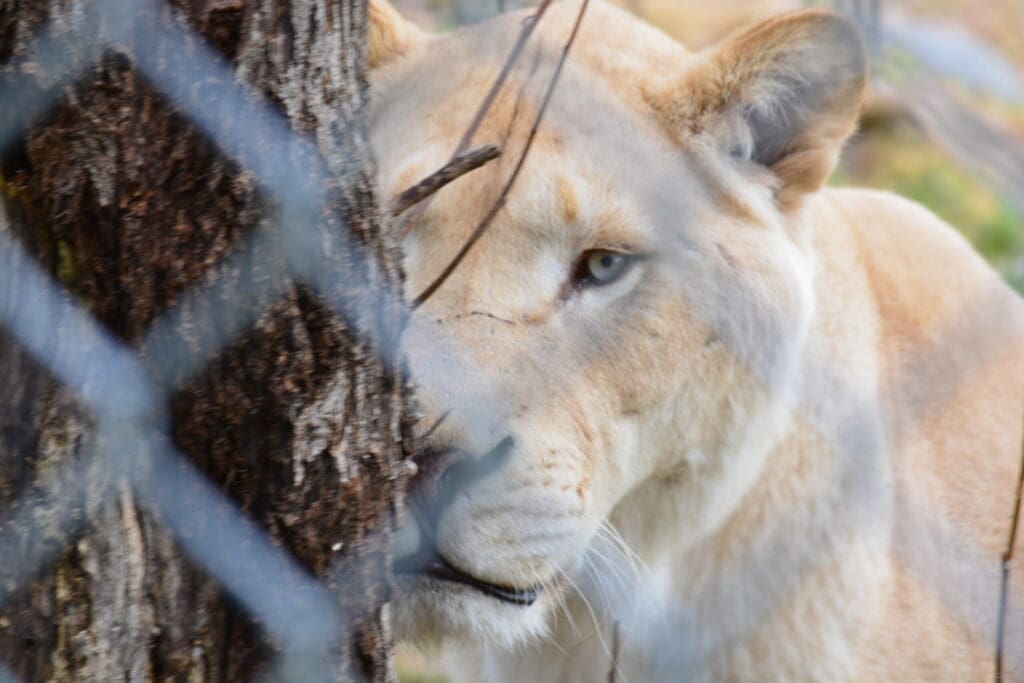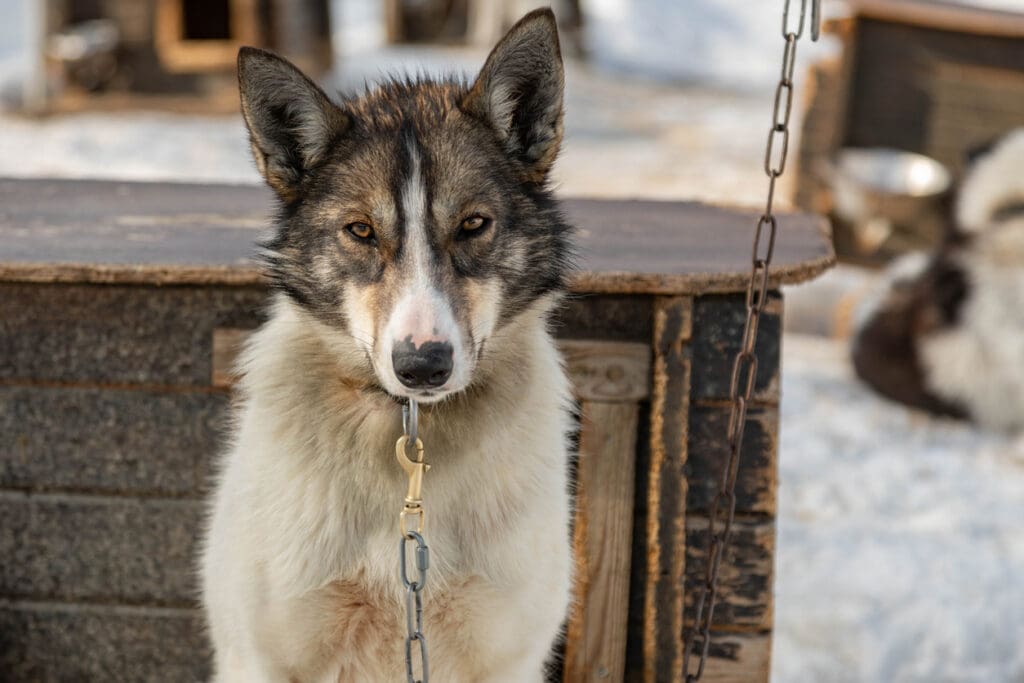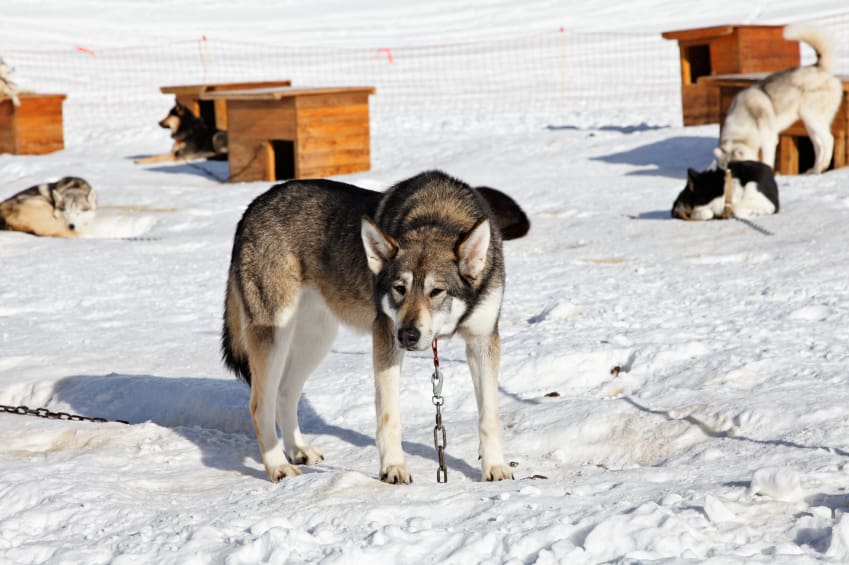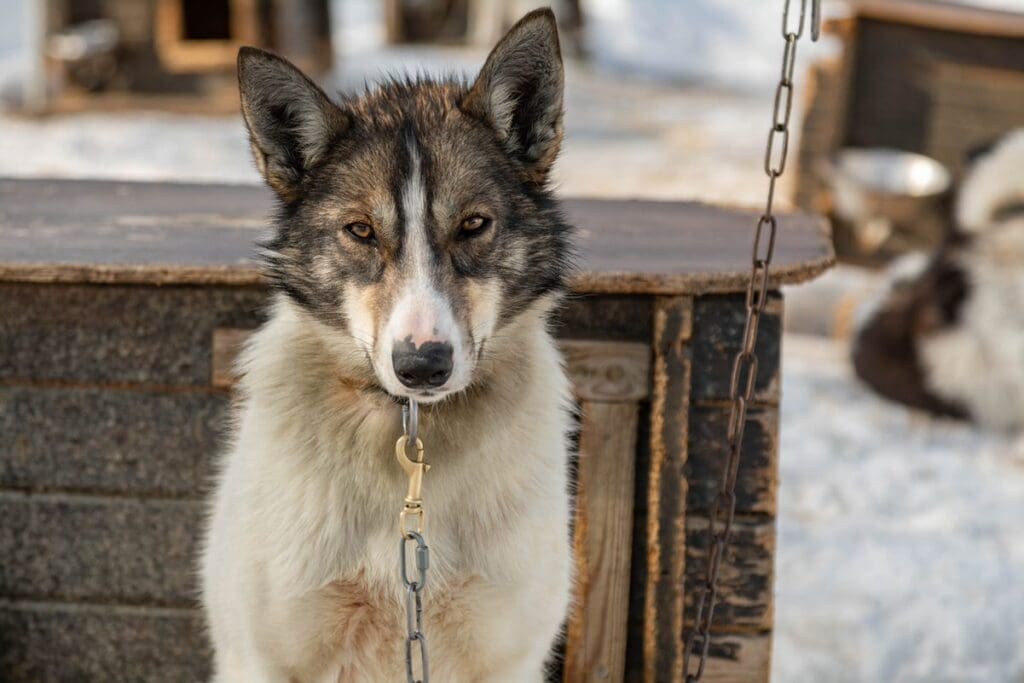Latest News
How you can help
Boycott sled dog tours and races, and ask your friends and family to do the same.
Donate to VHS’ efforts to stop the exploitation of sled dogs and other animals.
The truth about the dog sled industry
People in B.C. and around the world were shocked by the revelation in January, 2011 that dozens of sled dogs were brutally killed in Whistler in April 2010. The BC SPCA and RCMP investigated the killings and the provincial government created a task force to review the sled dog industry. In November, 2012 Robert Fawcett was sentenced to three years probation, 200 hours of community service, a $1,500 fine, a 10-year firearms ban and a three-year ban on any commercial involvement with animals. Many people were dissatisfied with the sentence but hoped steps had been taken to ensure such an incident could never happen again.
Earlier, in April 2011, a provincial government Sled Dog Task Force issued a report on the sled dog industry. The report’s recommendations, which were accepted by the government, called for regulation of the industry and for tougher animal cruelty laws.
VHS welcomed stronger animal cruelty laws but was disappointed with the new regulations for the sled dog industry, which still allow dogs to be kept tethered for long periods and to be killed by gunshot. The government also failed to provide the BC SPCA with the resources necessary to enforce the new standard of care for sled dog operations.
VHS remains concerned about the inherent poor welfare that is widespread in these industries and wants to see them banned. Sled dogs can spend most of their days tethered to posts when they are not pulling sleds, which denies them the opportunity to engage in normal behaviours. Research has shown that this causes frustration and can lead to abnormal behaviours such as aggression or hyper-vigilance (leading to lack of sleep). Tethered sled dogs are known to engage in rock-eating, indicative of frustration. (Industry guidelines recommend dogs be kept on plywood or concrete to prevent digging and rock-eating.)
The Whistler case shows what happens when animals that are exploited for profit become surplus to requirements. Any company whose bottom line is threatened has to cut costs. If animals are involved their welfare will invariably be put at risk.
In our experience, the economic exploitation of animals (even when well-intentioned) almost invariably results in compromising their welfare. We have found this to be the case in zoos, circuses, rodeos, the exotic pet trade and of course in animal agriculture. When these animals cease to be of economic value, these industries often fail to take responsibility for their welfare. Whether it’s ex-rodeo or race horses sold at auction for slaughter, unwanted greyhound racers, discarded exotic pets, or aging sled dogs, animals are put at risk when they are treated as commodities.
Currently, various rescue groups and well-intentioned individuals attempt to address these problems by setting up often financially-precarious sanctuaries or adoption programs. Essentially, industries using animals dump their moral responsibilities on others.
We have reached the conclusion that the economic exploitation of animals is incompatible with maintaining acceptable welfare. The only way to curtail animal suffering is to stop using them as commodities. While regulation of these industries might be helpful, government is generally unwilling to take on the responsibility of enforcement due to cost. For these reasons, VHS feels it is time to say “enough” and to work toward ending the economic exploitation of animals.
VHS was interviewed for the award-winning 2016 documentary Sled Dogs, which exposed the cruelty involved in sled dog racing and touring.
Reasons to oppose dog sledding
Culling
Sled dogs in B.C. can be legally shot when a “herd” is “culled.” We don’t think this is an acceptable form of euthanasia (which is defined as a “gentle and easy death”). A lethal injection, administered by a veterinarian, should be used only with sick or injured animals for whom treatment is not an option.
Tethering
Sled dogs are often kept in poor conditions. Most spend their days tethered to posts when they are not pulling sleds, which denies them the opportunity to engage in normal behaviours. Research has shown that this causes frustration and can lead to abnormal behaviours such as aggression or hyper-vigilance (leading to lack of sleep). Tethered sled dogs are known to engage in rock-eating, indicative of frustration. (Industry guidelines recommend dogs be kept on plywood or concrete to prevent digging and rock-eating.)
In addition to being deprived of socialization, tethered dogs are often the victims of abuse and neglect. They are forced to eat, sleep, urinate and defecate in the same confined area, which goes against their natural instincts. Tethered dogs can also suffer neck injuries from collars that have become embedded into their skin—some even choke to death when chains become entangled with other objects.
Racing
Sled dog races, such as the Yukon Quest or the Iditarod in Alaska, have seen dogs die from the exertion and exposure to extreme weather involved in the long-distance races.
The Iditarod:
The Iditarod is a dog sled race held every March in Anchorage, Alaska. In this race mushers (dog sled drivers) force their dogs to run 1,150 miles from Anchorage to Nome in 8 to 16 days over a grueling terrain. This is the approximate distance between Vancouver and Winnipeg. Mushers press their dogs to run at ever increasing speeds, so that the dogs get little rest or sleep.
According to Sled Dog Action Coalition at least 142 dogs have died in the Iditarod since records have been kept. There is no official count of dog deaths available for the race’s early years. Also, there are no records kept of how many dogs die in training or after the race each year.
Exploitation
The economic exploitation of animals (even when well-intentioned) almost invariably results in compromising their welfare. When these animals cease to be of economic value, these industries often fail to take responsibility for their welfare. Whether it’s ex-rodeo or race horses sold at auction for slaughter, or aging sled dogs, animals are put at risk when they are treated as commodities. The economic exploitation of animals is incompatible with maintaining acceptable welfare. The only way to curtail animal suffering is to stop using them as commodities.
Difficulty in rehoming
Sled dogs are high-energy, working animals that are not used to being confined indoors. There is debate about whether it is possible for most sled dogs to adjust to being a family pet, but there is general agreement that it is difficult and takes a very high degree of commitment and patience.
Animal shelters are already full of homeless dogs. Why should the sled dog industry be allowed to shirk its moral responsibilities and rely on rescue groups and well-intentioned individuals to take in the unwanted dogs that they have bred, exploited and discarded?

